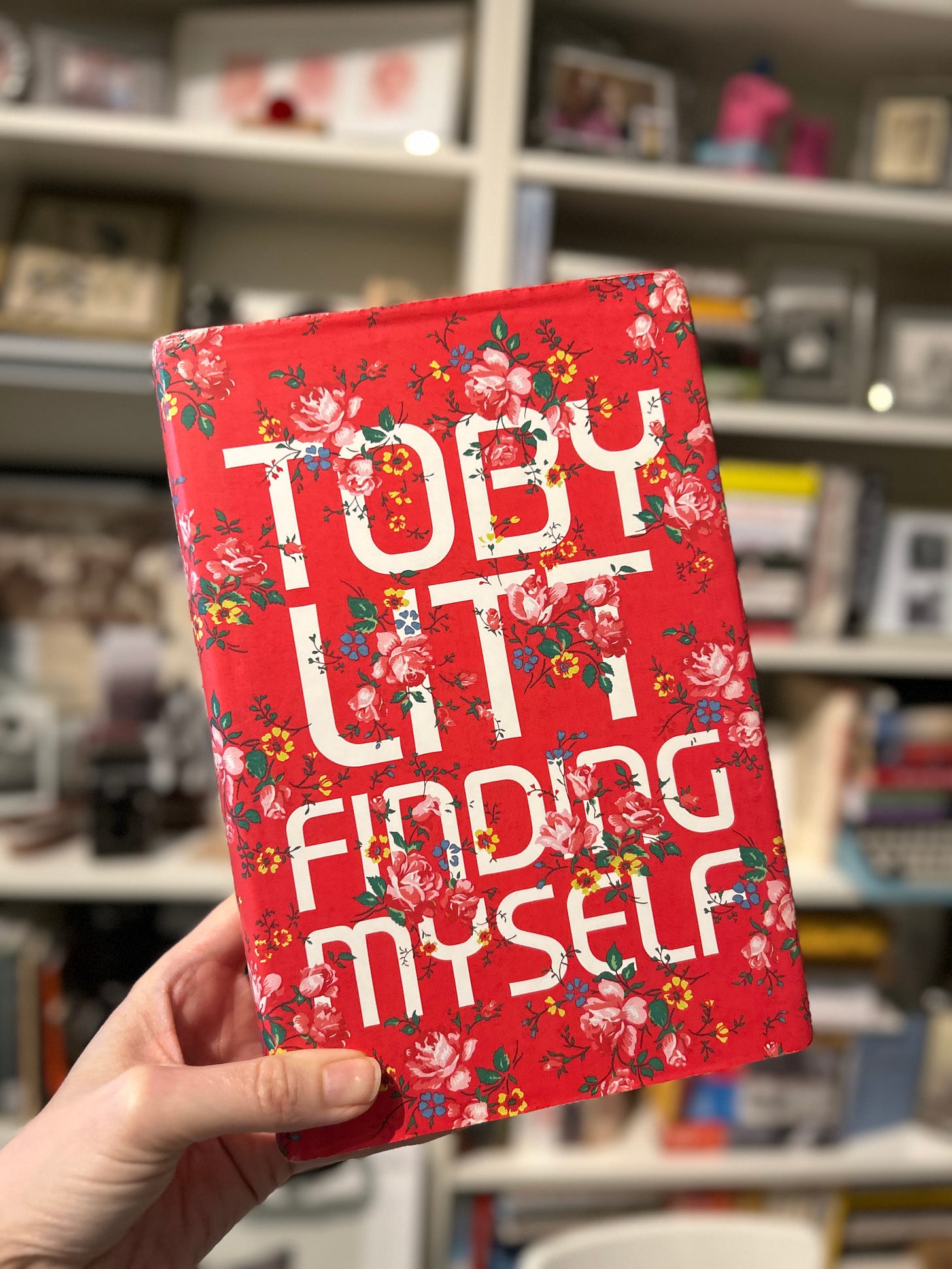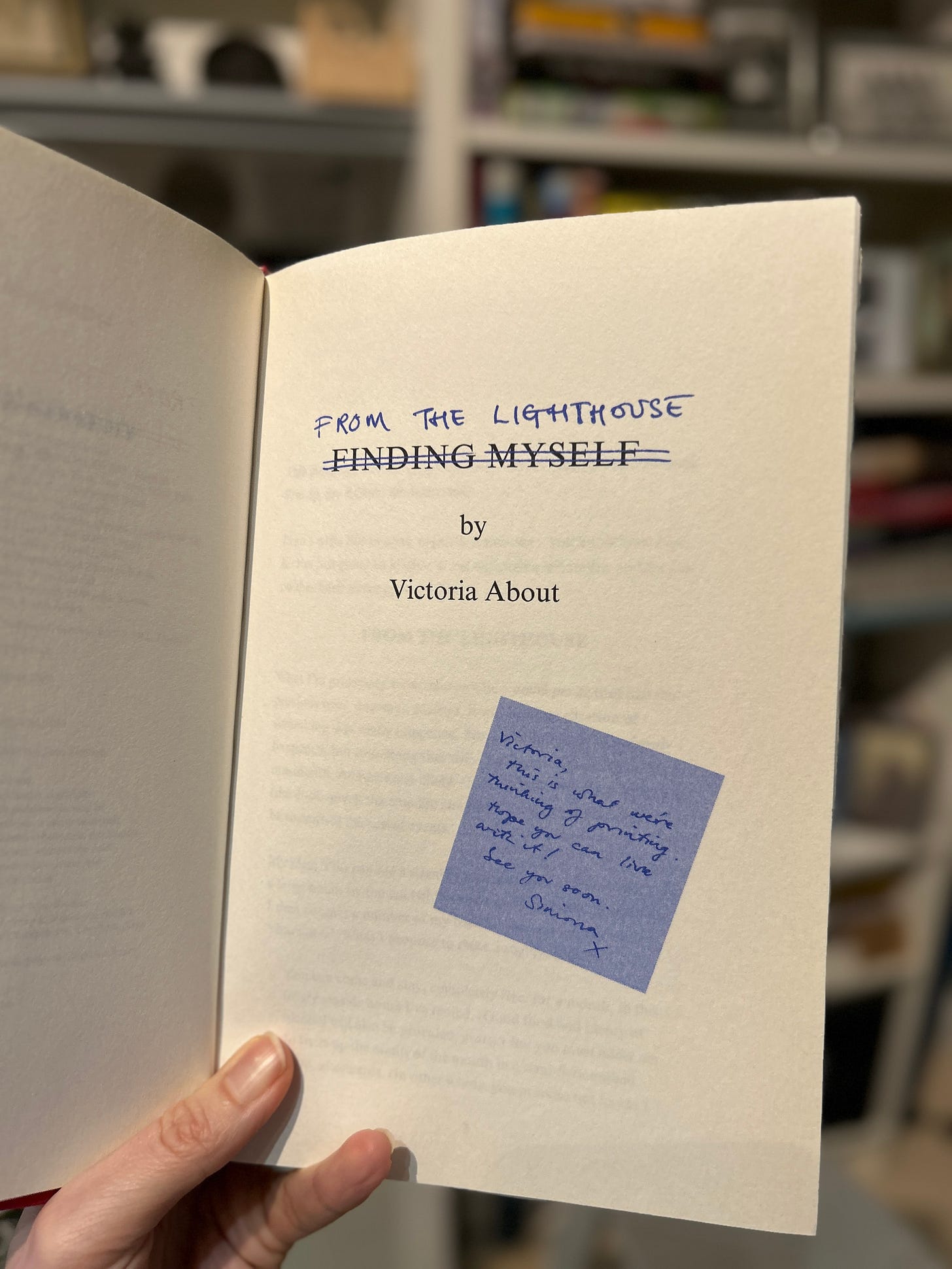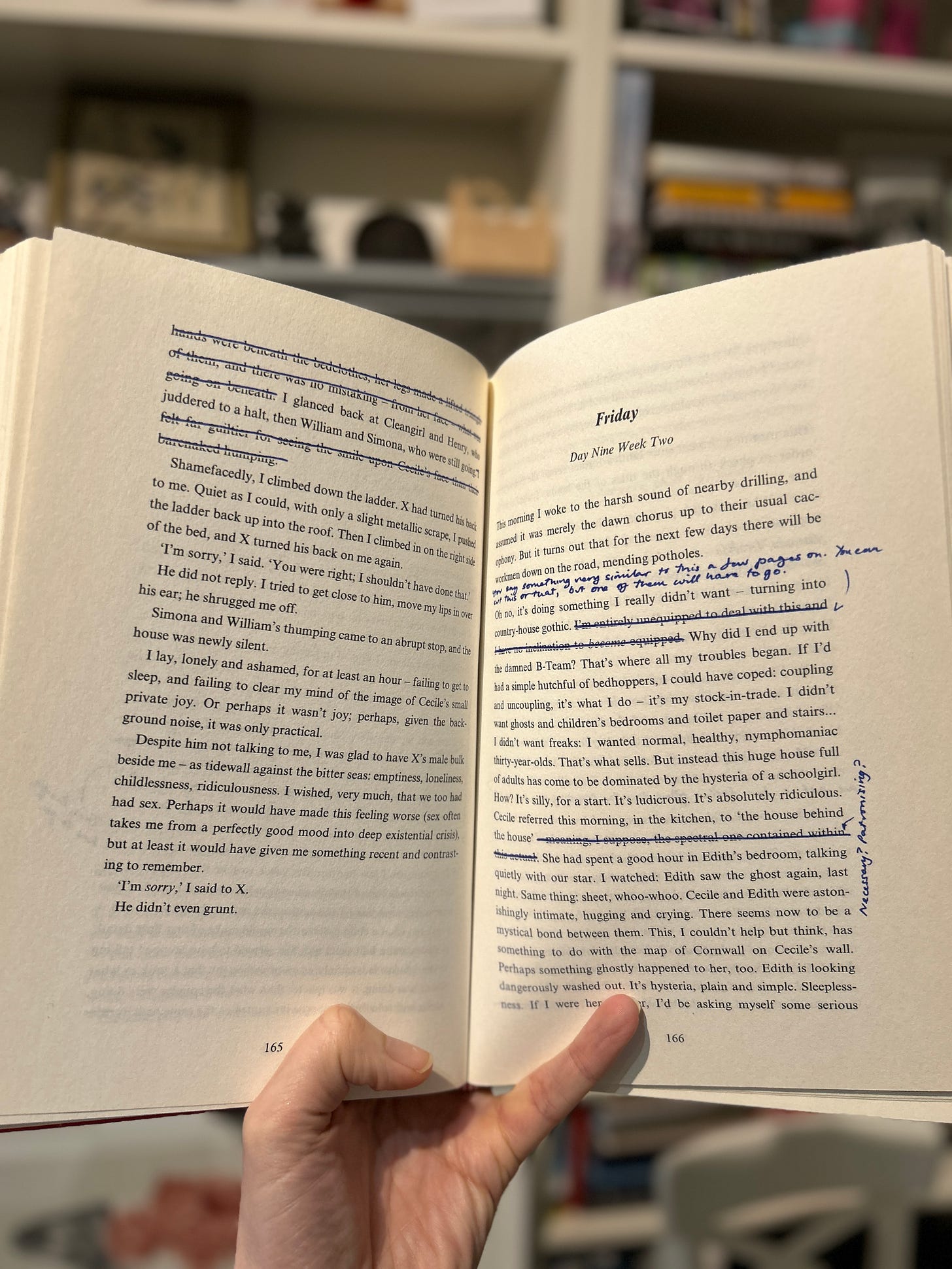Not everyone will like it
Is it necessary to always have a likeable central character? (Although what is necessary is actually sitting down to write...)
Is unlikeable always bad?
You know when you read a book and you close it and sit back and just… think. And even when you’ve put the book on the shelf, it stays with you, lingering there in your mind, prompting questions and giving you pause.
The latest of these for me is The Driver’s Seat by Muriel Spark. I finished it this weekend (having only started on it on Friday – it’s a novella, really, and a quick read).
Lise, the protagonist, is a 36-year-old woman who is – simply put – not very nice to many of the people she meets through the course of the story. That said, she also meets a handful of others who are equally unpleasant. But it’s Lise’s head that we are in (to some extent, as the book is a third-person narrative) and the story has the reader veering between confusion, repulsion, and sympathy (but hopefully not empathy).
We know from early on in the story that Lise will be murdered, and the reader is swept along in the need to know the why and the how and the who behind this. Muriel Spark described The Driver’s Seat as a whydunit rather than a whodunit.
The main aspect of the story that has stuck with me is not so much the plot but the characterisation. The unlikeability of Lise herself.
This led me to my bookshelves to find another book that has stayed with me because of its unusual format (more on that below) and its unreliable – and often unlikeable – narrator.
Most likely, I picked this book from the library shelves because the cover is gorgeous. Perhaps the author’s name rang a bell with me, as I’m certain a colleague a few years earlier had read another book by him. And you have to admit, it’s a stunner.
Since I read it the first time (probably eighteen or nineteen years ago), I’ve tried to get others to pick it up, and I even chose it for book club one time. And that didn’t go down well. I suspect much of this has to do with Victoria, the point-of-view character, who is selfish and sneaky and often quite rude to the people she calls her friends. Certainly, the reviews of it I’ve read don’t seem to see the satire in the story and focus instead on how awful Victoria is. Yes! She’s meant to be, I cry.
And yet this book has also stuck with me for many years because of its central conceit: we are reading the latest manuscript of author Victoria About, complete with comments and corrections by her editor, Simona.
Victoria’s manuscript is her interpretation of the month she has spent in a large house by the sea with a group of friends, including Simona. These friends are each allowed three pages at the end of the novel to say whatever they want. Unbeknownst to them, Victoria has equipped the house with spy cameras to see and hear everything that goes on.
The book cleverly plays with the idea of an unreliable narrator (just how much of what Victoria has written has actually happened) and also with the idea of what changes an editor can make later on in the process – especially as Simona is both the editor of the story and a character in what Victoria has written. As you read on, you become less and less certain how far you can trust either Victoria or Simona.
I was captivated by this book because of the editor’s handwritten markings on the text (some of the comments seemed terribly familiar to me as a copy/line editor – although I hope I’m not that harsh!) but I was drawn in fully by the compelling way that Toby Litt makes us care about a bunch of people who, on the whole, are not particularly pleasant.
How do you feel about unreliable narrators? Can you read books in which the point-of-view character is unlikeable? And if you’ve read The Driver’s Seat or Finding Myself, do drop me a comment, as I’d love to know what others have thought of them and their central characters.
What I’ve been up to recently
I’ve been in something of a writing slump during January. I think it’s this liminal space between querying The Third Letter and trying not to think about rejections and lack of responses, and, on the other hand, wanting to focus on a new story and a new set of characters in the second novel (currently titled Beneath the Widening Sky).
I’d been progressing with the new novel at a pace at the end of last year, but I suddenly hit a stop. I’ve had the two main characters meet each other, but now I need them to spend time together, and I cannot find the right way to do this.
Much of this stems, I think, from not having a fleshed-out outline of the story. I know that main beats and plot points, but getting from one to the other of these is where I am wading through treacle.
Two things have helped me feel more reassured that I can and will get through this. First, I’ve joined an online course that aims to build out your plot from its very core over the space of four weeks, gradually adding, adding, adding layer after layer until… bingo, an outline!
And the second is the chat I had with my critique group, admitting to them that I’m going in circles with this next scene, and how very much I hate what I’ve written so far and cringe each time I look at it in Scrivener.
They gave me some ideas for taking a fresh angle with what the scene needs to be doing, and now ideas are sparking; admittedly not enough to get me writing the scene, because I’m sitting here writing this to you, but I know it will come now.
It will come.
On the bedside table
Teddy – Emily Dunlay: Teddy’s world is falling apart. She’s newly married and all set to enjoy life in Rome when her past life catches up with her. Funny, charming, absorbing – I feel like I’m in Rome with Teddy during the sweltering summer of 1969.
Says Who?: A Kinder, Funner Usage Guide for Everyone Who Cares About Words – Anne Curzan: A less prescriptive English language usage guide – this is one for the grammar nerds and those who are fascinated by how the English language works as it changes and evolves.
Köpenhamnstrilogin: Barndom, Ungdom, Gift / Copenhagen Trilogy: Childhood, Youth, Dependency – Tove Ditlevsen: Three books in one, this is the memoir of Danish author Tove Ditlevsen, who grew up in a working class family in central Copenhagen and went on to publish short stories, poetry, novels, and these memoirs. I’m reading these in Swedish, but her memoirs are also available translated into English. (It’s interesting to me that the third of these memoirs is translated as Dependency in English; the word Gift has a double meaning in both Danish and Swedish: poison, but also married. And this third memoir deals with both her alcohol and drug addictions and her marriages.)
You can check out what is on my TBR or pick up copies of my recent reads at Bookshop UK (affiliate link) if any have piqued your interest.
If you’ve enjoyed reading this, why not tap the heart up there at the top or down at the end of this email ❤️
Until the next time,
If you like this newsletter, you can buy me a virtual coffee - coffee always keeps me going ☕










I really love an unreliable narrator! A memorable example for me is ‘Notes on a Scandal’ by Zoẽ Heller. Definitely adding that Toby Litt one to my list.